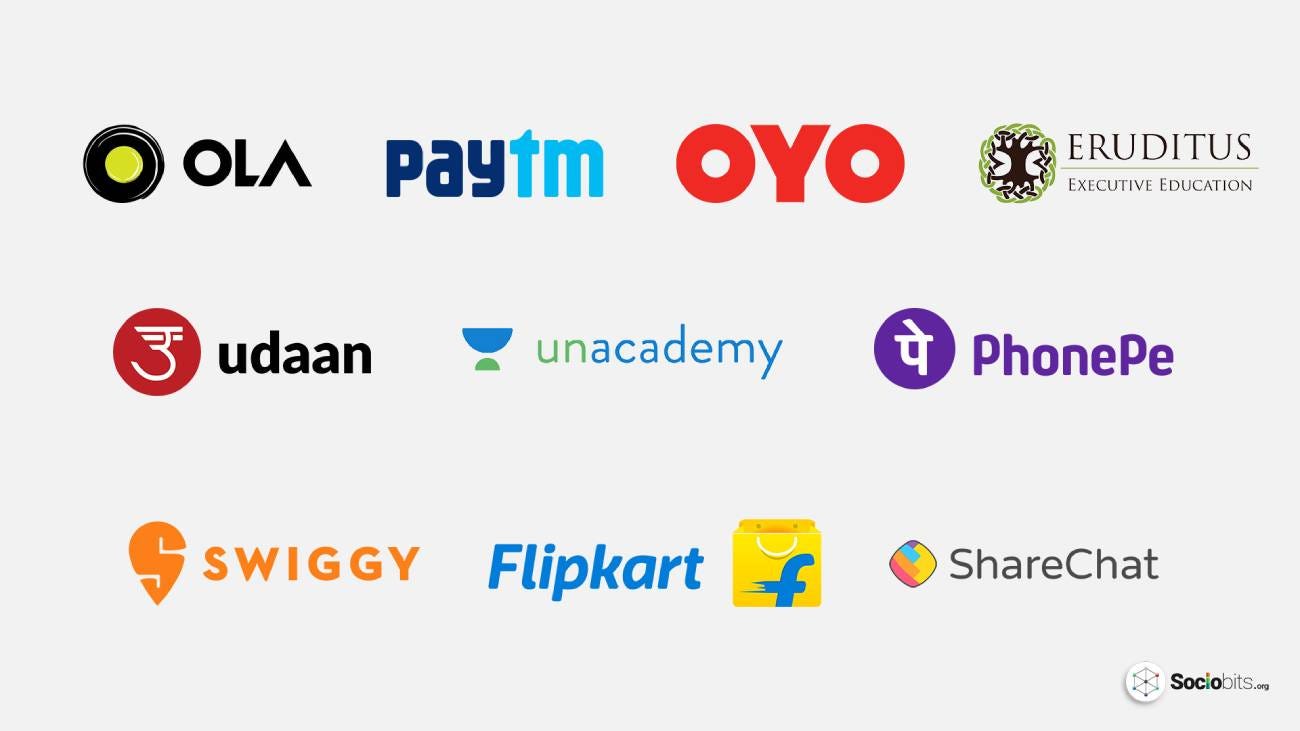Healthcare businesses have witnessed an exponential rise in India over recent years, revolutionizing the way healthcare is delivered. By blending technology with healthcare services, these firms are addressing key gaps in accessibility, affordability, and quality. With advancements in wearable technology, telemedicine, artificial intelligence (AI), and electronic health records (EHRs), HealthTech has the potential to transform the healthcare experience for millions of Indians.
Key Innovations Driving HealthTech
One of the most significant innovations in health technology is telemedicine, which allows patients to consult doctors remotely via video calls. This has proven to be a game-changer, particularly during the COVID-19 pandemic, offering timely care to both urban and rural populations. Apps such as DocsApp, mFine, and Practo have made it easier for patients to book consultations and receive digital prescriptions, enhancing healthcare accessibility and convenience.
AI-powered diagnostic tools are another breakthrough, assisting medical professionals in early disease detection for conditions like cancer, heart disease, and eye issues. Startups such as Qure.ai offer cutting-edge radiology solutions, while Niramai utilizes AI to diagnose breast cancer. These advancements not only accelerate the turnaround of test results but also improve diagnostic accuracy, offering greater precision in healthcare.
Mobile health apps and wearable medical technology are also gaining popularity, enabling individuals to monitor their vitals like blood sugar, heart rate, and sleep patterns. Companies such as BeatO and GOQii provide products that promote proactive health management and encourage preventive care, empowering individuals to take control of their health.
Opportunities for Growth
India’s health technology sector presents immense growth opportunities for several reasons. Rising smartphone and internet usage have expanded access to digital health services in both urban and rural areas. Government initiatives, like the Ayushman Bharat Digital Mission (ABDM), are further boosting the adoption of digital health infrastructure and enabling the seamless sharing of medical records.
There is also increasing demand for personalized healthcare and wellness solutions, which opens doors for startups to develop specialized products such as fitness tracking apps and mental health platforms. Corporate wellness programs are further driving the need for technology-based solutions in employee health and preventive care.
The funding environment for health tech companies has also become highly dynamic, with venture capitalists and private equity firms recognizing the sector’s potential. Entrepreneurs and hospitals are collaborating to combine clinical expertise with technological innovation, creating a seamless continuum of care that can enhance healthcare delivery across the country.
Conclusion
The rise of health tech companies in India signals a promising future where technology bridges the gap between patients and healthcare professionals. While challenges such as data privacy and regulatory compliance remain, the sector holds vast potential to transform healthcare access and improve health outcomes. With sustained innovation, strategic partnerships, and supportive policies, HealthTech companies are poised to revolutionize healthcare delivery for millions across the nation.
HealthTech Revolution in India: Transforming Healthcare Delivery
Healthcare businesses have witnessed an exponential rise in India over recent years, revolutionizing the way healthcare is delivered. By blending technology with healthcare services, these firms are addressing key gaps in accessibility, affordability, and quality. With advancements in wearable technology, telemedicine, artificial intelligence (AI), and electronic health records (EHRs), HealthTech has the potential to transform the healthcare experience for millions of Indians.
Key Innovations Driving HealthTech
One of the most significant innovations in health technology is telemedicine, which allows patients to consult doctors remotely via video calls. This has proven to be a game-changer, particularly during the COVID-19 pandemic, offering timely care to both urban and rural populations. Apps such as DocsApp, mFine, and Practo have made it easier for patients to book consultations and receive digital prescriptions, enhancing healthcare accessibility and convenience.
AI-powered diagnostic tools are another breakthrough, assisting medical professionals in early disease detection for conditions like cancer, heart disease, and eye issues. Startups such as Qure.ai offer cutting-edge radiology solutions, while Niramai utilizes AI to diagnose breast cancer. These advancements not only accelerate the turnaround of test results but also improve diagnostic accuracy, offering greater precision in healthcare.
Mobile health apps and wearable medical technology are also gaining popularity, enabling individuals to monitor their vitals like blood sugar, heart rate, and sleep patterns. Companies such as BeatO and GOQii provide products that promote proactive health management and encourage preventive care, empowering individuals to take control of their health.
Opportunities for Growth
India’s health technology sector presents immense growth opportunities for several reasons. Rising smartphone and internet usage have expanded access to digital health services in both urban and rural areas. Government initiatives, like the Ayushman Bharat Digital Mission (ABDM), are further boosting the adoption of digital health infrastructure and enabling the seamless sharing of medical records.
There is also increasing demand for personalized healthcare and wellness solutions, which opens doors for startups to develop specialized products such as fitness tracking apps and mental health platforms. Corporate wellness programs are further driving the need for technology-based solutions in employee health and preventive care.
The funding environment for HealthTech companies has also become highly dynamic, with venture capitalists and private equity firms recognizing the sector’s potential. Entrepreneurs and hospitals are collaborating to combine clinical expertise with technological innovation, creating a seamless continuum of care that can enhance healthcare delivery across the country.
Conclusion
The rise of health tech companies in India signals a promising future where technology bridges the gap between patients and healthcare professionals. While challenges such as data privacy and regulatory compliance remain, the sector holds vast potential to transform healthcare access and improve health outcomes. With sustained innovation, strategic partnerships, and supportive policies, HealthTech companies are poised to revolutionize healthcare delivery for millions across the nation.
HealthTech businesses have witnessed an exponential rise in India over recent years, revolutionizing the way healthcare is delivered. By blending technology with healthcare services, these firms are addressing key gaps in accessibility, affordability, and quality. With advancements in wearable technology, telemedicine, artificial intelligence (AI), and electronic health records (EHRs), HealthTech has the potential to transform the healthcare experience for millions of Indians.
Key Innovations Driving HealthTech
One of the most significant innovations in health technology is telemedicine, which allows patients to consult doctors remotely via video calls. This has proven to be a game-changer, particularly during the COVID-19 pandemic, offering timely care to both urban and rural populations. Apps such as DocsApp, mFine, and Practo have made it easier for patients to book consultations and receive digital prescriptions, enhancing healthcare accessibility and convenience.
AI-powered diagnostic tools are another breakthrough, assisting medical professionals in early disease detection for conditions like cancer, heart disease, and eye issues. Startups such as Qure.ai offer cutting-edge radiology solutions, while Niramai utilizes AI to diagnose breast cancer. These advancements not only accelerate the turnaround of test results but also improve diagnostic accuracy, offering greater precision in healthcare.
Mobile health apps and wearable medical technology are also gaining popularity, enabling individuals to monitor their vitals like blood sugar, heart rate, and sleep patterns. Companies such as BeatO and GOQii provide products that promote proactive health management and encourage preventive care, empowering individuals to take control of their health.
Opportunities for Growth
India’s health technology sector presents immense growth opportunities for several reasons. Rising smartphone and internet usage have expanded access to digital health services in both urban and rural areas. Government initiatives, like the Ayushman Bharat Digital Mission (ABDM), are further boosting the adoption of digital health infrastructure and enabling the seamless sharing of medical records.
There is also increasing demand for personalized healthcare and wellness solutions, which opens doors for startups to develop specialized products such as fitness tracking apps and mental health platforms. Corporate wellness programs are further driving the need for technology-based solutions in employee health and preventive care.
The funding environment for health tech companies has also become highly dynamic, with venture capitalists and private equity firms recognizing the sector’s potential. Entrepreneurs and hospitals are collaborating to combine clinical expertise with technological innovation, creating a seamless continuum of care that can enhance healthcare delivery across the country.
Conclusion
The rise of health tech companies in India signals a promising future where technology bridges the gap between patients and healthcare professionals. While challenges such as data privacy and regulatory compliance remain, the sector holds vast potential to transform healthcare access and improve health outcomes. With sustained innovation, strategic partnerships, and supportive policies, HealthTech companies are poised to revolutionize healthcare delivery for millions across the nation.



